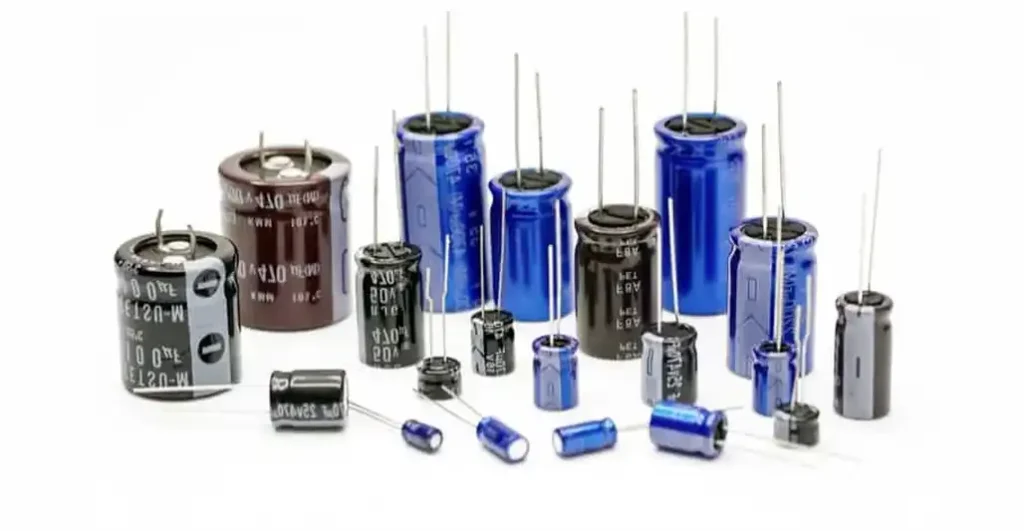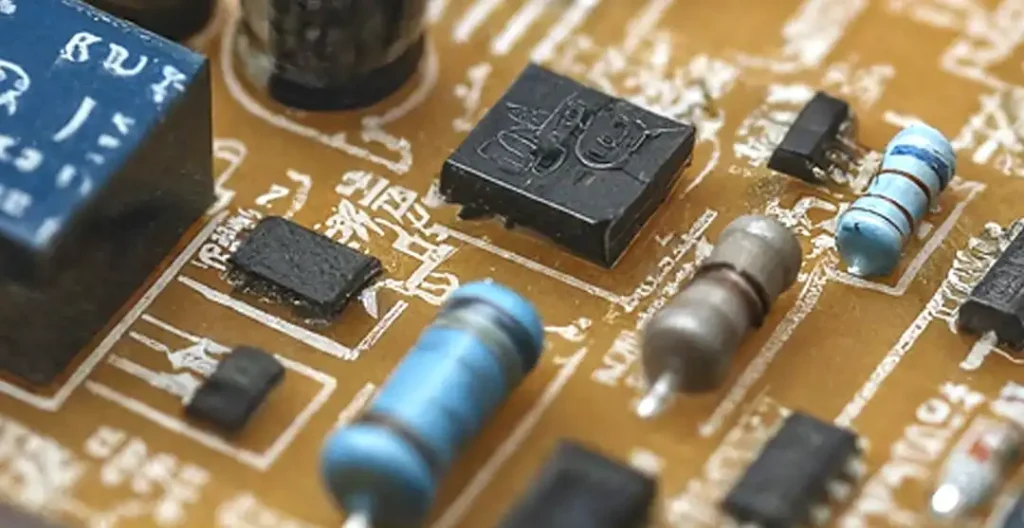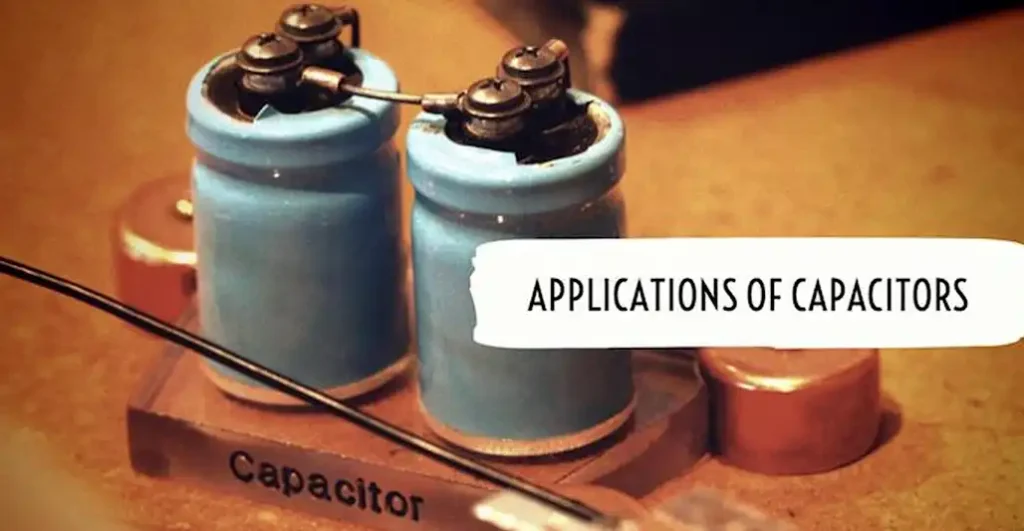Capacitors, often overlooked in the realm of electronic components, play a pivotal role in various applications across industries. Their ability to store and release electrical energy makes them indispensable in countless electronic devices. In this comprehensive guide, we delve into the diverse functionalities of capacitors and explore the question: What are capacitors used for?
What Are Capacitors?

Capacitors are passive electronic components that store and release electrical energy. They consist of two conductive plates separated by an insulating material known as a dielectric. When a voltage is applied across the plates, an electric field forms, allowing the capacitor to store energy in the form of an electrostatic field.
How Do Capacitors Work?

Capacitors function based on the principle of capacitance, which is the ability to store charge per unit voltage. When connected to a power source, capacitors charge and discharge according to the applied voltage and the capacitance value.
What Are Capacitors Used For

Here some wide applications for capacitors in the following:
Capacitors have many uses in electronic and electrical systems. They are so ubiquitous that it is rare that an electrical product does not include at least one for some purpose. Capacitors allow only AC signals to pass when they are charged blocking DC signals. The main components of filters are capacitors. Capacitors have the ability to connect one circuit segment to another. Capacitors are used by Dynamic Random Access Memory (DRAM) devices to represent binary information as bits.
source: https://en.wikipedia.org/wiki/Applications_of_capacitors
In Electronics
Capacitors are ubiquitous in electronic circuits, where they serve various purposes such as filtering, coupling, and timing. They stabilize voltage levels, filter out noise, and facilitate signal processing in devices ranging from smartphones to computers.
In Power Supplies
Capacitors play a crucial role in power supply systems by smoothing out voltage fluctuations and providing transient surge protection. They store energy during peak demand periods and release it when needed, ensuring stable power delivery to electrical devices.
In Automotive Systems
In the automotive industry, capacitors are used for energy storage in hybrid and electric vehicles. They help manage the energy flow between the battery, motor, and other components, improving overall efficiency and performance.
In Renewable Energy
Capacitors are integral to renewable energy systems, where they store excess energy generated by sources such as solar panels and wind turbines. They ensure a steady supply of power by storing surplus energy during periods of low demand.
In Medical Devices
In medical electronics, capacitors are utilized in imaging equipment, defibrillators, pacemakers, and other life-saving devices. They assist in energy storage, signal conditioning, and voltage regulation, enhancing the reliability and effectiveness of medical technology.
In Communication Systems
Capacitors enable efficient transmission and reception of signals in communication systems such as radios, televisions, and cellular networks. They filter out unwanted frequencies, improve signal quality, and maintain signal integrity over long distances.
In Industrial Applications
In industrial settings, capacitors are employed in motor starters, power factor correction units, and voltage regulation systems. They optimize energy efficiency, reduce power losses, and enhance the performance of industrial machinery.
In Consumer Electronics
Capacitors find widespread use in consumer electronics, including appliances, audio equipment, and lighting systems. They store energy for quick release, stabilize power supply voltages, and improve the reliability of electronic devices.
Why Are Capacitors Used?
Capacitors are used for various purposes in electronic circuits due to their ability to store and release electrical energy quickly.
Some common reasons for using capacitors include:
- Energy Storage: Capacitors store electrical energy in an electric field when they are charged. This stored energy can be released rapidly when needed, making capacitors useful for providing short bursts of power in electronic devices.
- Filtering and Smoothing: Capacitors can be used to filter out unwanted signals or noise from electrical circuits. They can smooth out fluctuations in voltage or current, ensuring a more stable and consistent electrical supply.
- Timing and Tuning: Capacitors, in conjunction with resistors, can be used to create timing circuits in electronic devices. By controlling the rate at which they charge and discharge, capacitors can regulate the timing of various functions within a circuit. They are also used in tuning circuits to select specific frequencies or adjust the resonance of circuits.
- Coupling and Decoupling: Capacitors are often used to couple or decouple signals between different parts of a circuit. They can block direct current (DC) while allowing alternating current (AC) to pass through, which is useful for isolating different sections of a circuit or coupling signals between stages.
- Voltage Regulation: Capacitors can help regulate voltage levels in electronic circuits. They can absorb excess voltage spikes or surges, protecting sensitive components from damage.
- Signal Processing: Capacitors are integral components in various signal processing circuits, such as amplifiers, oscillators, and filters. They help shape, modify, or amplify electrical signals to achieve desired outcomes.
- Power Factor Correction: Capacitors are employed in power factor correction circuits to improve the efficiency of electrical systems by reducing reactive power and minimizing energy losses.
Capacitors play crucial roles in a wide range of electronic applications, from basic power supply filtering to complex signal processing and control functions. Their versatility and effectiveness make them indispensable components in modern electronic design.
How to Use a Capacitor?
Using a capacitor involves integrating it into an electronic circuit to perform specific functions.
Here’s a general guide on how to use a capacitor effectively:
- Identify Circuit Requirements: Determine the role the capacitor will play in the circuit, such as energy storage, filtering, timing, or coupling.
- Select the Right Capacitor: Choose a capacitor with the appropriate capacitance, voltage rating, and type (electrolytic, ceramic, film, etc.) based on the circuit requirements and environmental factors.
- Connect the Capacitor: Connect the capacitor to the circuit according to the specific application. This may involve connecting in parallel, series, or in a specific configuration as per the circuit design.
- Observe Polarity (if applicable): Pay attention to the polarity of polarized capacitors (such as electrolytic capacitors) and ensure correct orientation during connection to prevent damage.
- Follow Safety Precautions: Take necessary safety precautions, such as ensuring the circuit is powered off before connecting or disconnecting capacitors to avoid electrical hazards.
- Test and Adjust: Power on the circuit and test the functionality of the capacitor within the circuit. Monitor performance and adjust capacitor values or configurations if needed to achieve desired results.
- Consider Temperature and Environmental Factors: Capacitor performance can be affected by temperature and environmental conditions. Choose capacitors with appropriate temperature and stability ratings for the application.
- Replace or Upgrade as Needed: Periodically inspect capacitors for signs of wear or failure, such as bulging, leakage, or changes in capacitance. Replace or upgrade capacitors as needed to maintain circuit performance and reliability.
By following these steps and considering the specific requirements of your circuit, you can effectively use capacitors to enhance circuit functionality, stability, and performance. Always refer to circuit diagrams, datasheets, and manufacturer guidelines for best practices and safety recommendations.
FAQs
How do capacitors store energy?
Capacitors store energy by accumulating opposite charges on their plates, separated by a dielectric material. This separation creates an electric field, allowing the capacitor to store electrical energy.
Are all capacitors the same?
No, capacitors vary in terms of capacitance, voltage rating, temperature stability, and construction materials. Different types of capacitors are designed for specific applications, ranging from decoupling capacitors in circuit boards to high-voltage capacitors in power systems.
Can capacitors explode?
Under certain conditions, such as overvoltage or physical damage, capacitors can fail catastrophically, leading to rupture or explosion. It’s essential to adhere to manufacturer specifications and safety guidelines when handling capacitors to prevent such incidents.
How do capacitors improve power quality?
Capacitors improve power quality by correcting power factor, reducing voltage fluctuations, and suppressing harmonics in electrical systems. They enhance system efficiency and reliability, leading to improved performance and reduced energy costs.
What are the limitations of capacitors?
Although capacitors offer numerous benefits, they have limitations such as leakage current, temperature sensitivity, and voltage derating. These factors must be considered during the design and implementation of capacitor-based systems.
Are capacitors environmentally friendly?
While capacitors themselves are non-toxic and recyclable, certain types contain hazardous materials such as electrolytes or dielectrics. Proper disposal and recycling procedures are necessary to minimize environmental impact and ensure compliance with regulations.
Conclusion
In conclusion, capacitors are versatile components with a wide range of applications across industries. From electronics and automotive systems to renewable energy and medical devices, capacitors play a vital role in powering modern technology.
By understanding what capacitors are used for and how they function, we gain insight into their significance in shaping the world around us.